As a professional rugby player – and bride-to-be – Louise Galvin thought she had managed to organise her Christmas wedding around the HSBC World Sevens series.
“I was like, ‘OK, Dubai is the first week in December; that’s two weeks for black eyes to heal,’” she states, matter-of-factly.
That was until the announcement of two new fixtures, including one in Capetown just before the big day.
“So I fly back on the Monday or Tuesday, depending on flight times, and get married on the Friday… hopefully my face will be fine!”
Though we suspect that whatever happens, the farmer’s daughter will be as cool, calm and collected walking up the aisle as she is on the pitch, having overcome much bigger obstacles along the way while making the transition to professional sport in 2015.
Farming roots
We meet at the InterContinental Hotel in Dublin 4, close to the IRFU training base; but it soon becomes clear that Louise’s heart is in north Kerry, where she was one of six children raised on a dairy farm near Finuge by her parents, Aidan and Kay.
Sadly, Aidan passed away in December after a short illness, but his legacy lives on – particularly in terms of his work ethic – with Louise explaining how he actually took over his own family farm at just 19, after his parents and siblings decided to immigrate to England.
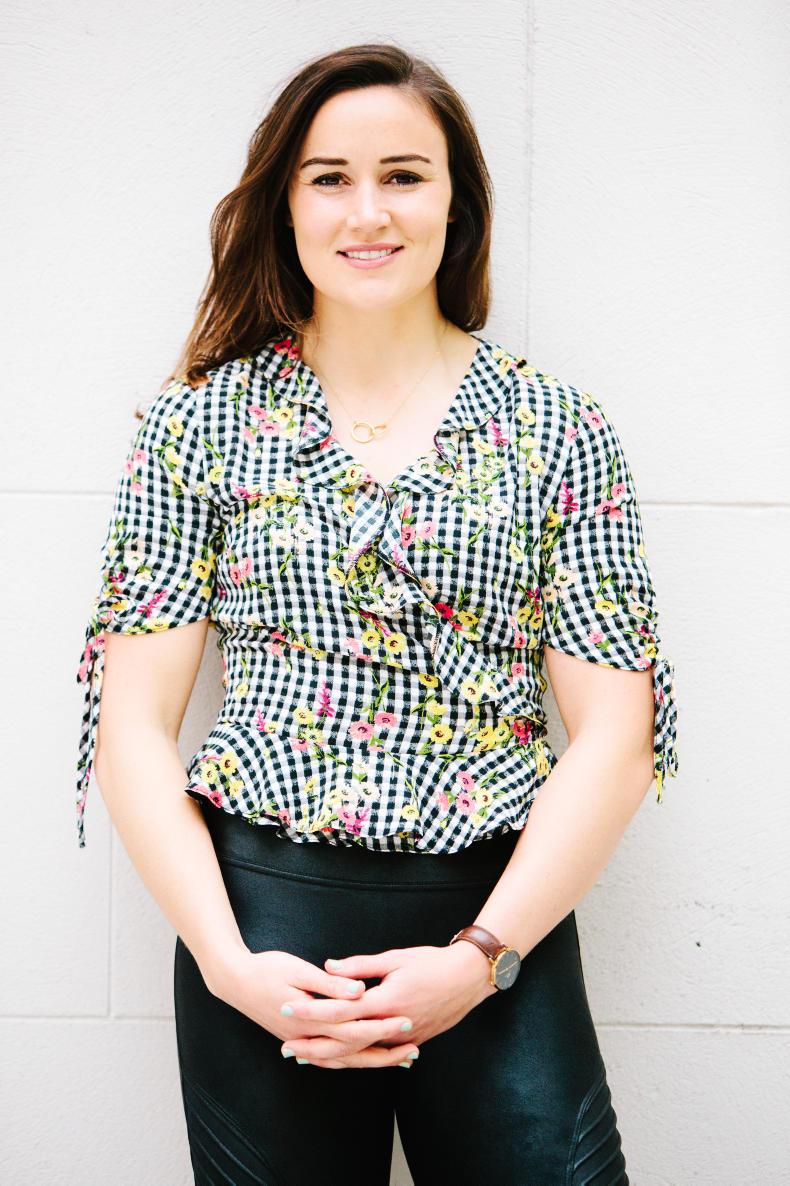
A physiotherapist by profession, Louise left her job in 2015 to go pro. \ Rita Slattery
“I think it’s very interesting because when you think now of a 19-year-old just digging your heels in,” says Louise, who believes that growing up on a farm laid the groundwork for her future in rugby in many ways.
“There was no, ‘You can’t do that because you’re a girl, you’re not able,’ it was the opposite. If we put calves in the field for the first time and they were running all over the place and one outruns you, he was like: ‘I thought you were faster than that?’ Or if you can’t close a gap, he’d say: ‘I thought you were stronger than that?’” she recalls.
“A lot of people say to me: ‘God, you’ve done very well in what’s known as kind of a male-dominated environment.’ I kind of take it in my stride because I never thought of it that way… there’s no such thing that you can’t do something because you’ve a ponytail. And dad still allowed me to be a girl.”
Indeed, at his funeral, it was important to Louise that she helped carry his coffin to his final resting place.
“So that was my last kind of real tribute to him,” she reflects.
Life-changing
Today, the farm is run by her younger brother, along with her mother, with Louise making the pilgrimage down the M7 as often as she can between squad training and fixtures, which have seen her travel to Sydney, Japan, Canada and France so far this year, with Russia in July and Dubai and Capetown before the end of December.
Not that Louise ever saw a future as a professional athlete, not to mind in rugby.
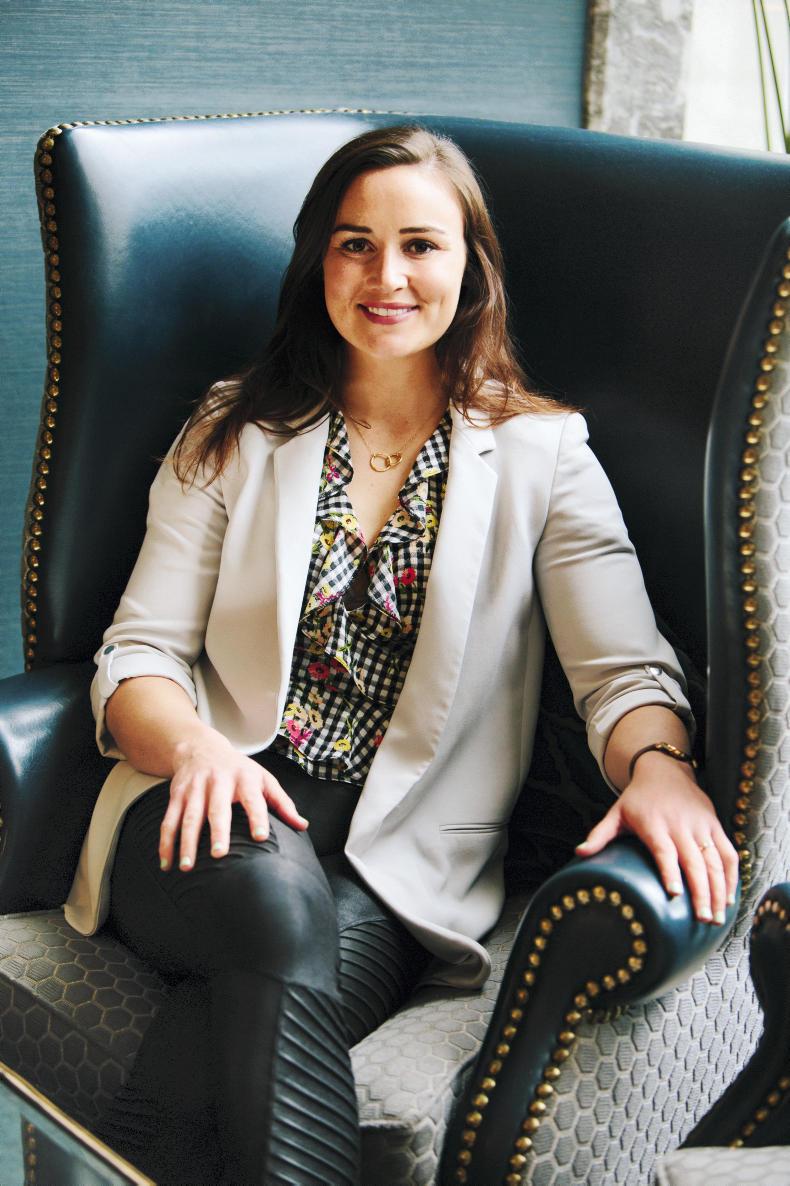
Louise has also taken on a new role representing her squad on the Rugby Players Ireland Executive. \ Rita Slattery
“Absolutely not, because it wasn’t visible,” says Louise, who explains that Kerry football was the religion at home, though she also started playing basketball in school, before moving to Limerick after her Leaving Cert to study physiotherapy.
Not that it stopped Louise excelling in both sports: being capped internationally at under 18, under 20 and senior level in basketball, and playing with the Kerry ladies’ football team for six seasons.
However, she only started playing rugby in her mid-20s after losing a bet with her boyfriend, Alan Feeley, to go along to a training session with UL Bohemians RFC.
“And loved it,” she confirms. “I said: ‘What will I do now? I can barely juggle two sports, never mind three!’”
In November 2013, however, Louise’s world was rocked when Alan died suddenly after suffering a major brain haemorrhage. He was just 28.
It’s just soul destroying and for a while you’re wondering what is the point in anything we do and what is the point in life at all
Even now, she says “words can’t describe” the shock of the loss.
“It’s just soul destroying and for a while you’re wondering what is the point in anything we do and what is the point in life at all,” says Louise, who credits family and friends with helping her to “keep my head above water”.
“I just still remember being incredibly astounded by the goodness of people. Because obviously, it’s such a tragedy. I just can’t get over how genuinely people felt for him, for me, for all the people who were affected by his loss.”
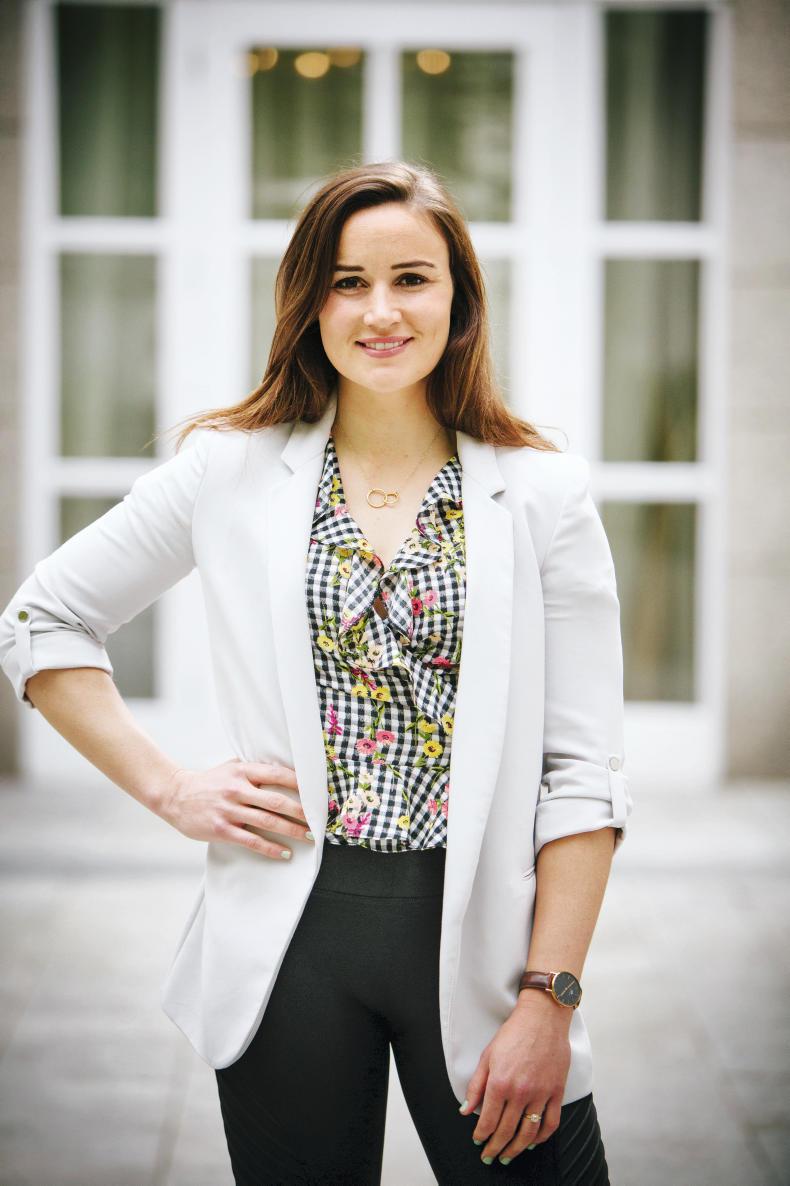
Louise Galvin at the InterContinental Dublin hotel. \ Rita Slattery
But as the months passed, she recalls one conversation in particular with a close friend, who works in cancer research. Her advice was that while the loss of Alan was undoubtedly a major event in her life, it did not have to “define” the rest of her life.
OK, this is something massive that’s happened, but you’re going to learn things, it’s going to give you a massive perspective on life in that you don’t have to sweat the small things
“I needed somebody quite close to me that I could trust to be able to say that to me – that life is not all ‘before Alan died’ and ‘after Alan died’, because that’s the way everything was looking,” explains Louise.
“It was a case of, ‘OK, this is something massive that’s happened, but you’re going to learn things, it’s going to give you a massive perspective on life in that you don’t have to sweat the small things and actually an idea of what the important things are, which is family, friends, relationships, the things you enjoy.’”
And for Louise, one of the things that helped her find her feet again was sport.
“Because for that one hour, I was the old Louise. My opponent probably knew what happened because Ireland is small and these sporting communities are small, but it was irrelevant, they were still trying to get the ball off me and I still had to get the ball off them,” she explains.
I just remembering thinking, ‘God, sport is so important to me’
“Some people were saying: ‘God, don’t be putting yourself back in those stressful environments and competitive environments.’ And I was like: ‘That’s what I need because that’s normal for me. That’s the only part of my life right now that feels normal or routine.’
“And I just remembering thinking, ‘God, sport is so important to me’. It’s given me so many friendships and support networks of people I can rely on.”
Going pro
The experience also underlined for Louise “how fragile life is”, so in 2015, when she was approached to join the Irish Rugby Sevens squad, she took a career break – and leap of faith – and moved from Limerick to Dublin.
“I left my permanent, pensionable, HSE job… oh my parents!” she jokes. “(But I thought) life is short and I can’t do this in 10 years.”
I would have played every minute as well, so it was a really difficult tournament
And she has no regrets; shortly after joining the squad, Ireland achieved a major goal of attaining core team status on the world series, and when Louise had to make the call between returning to work or sticking with sport, she went with the latter.
Other highlights include beating England at the World Cup in San Francisco last summer to finish in sixth place, and making it into the “top four” in Sydney in January – though this was a bittersweet victory for Louise, just a month after losing her dad.
“I would have played every minute as well, so it was a really difficult tournament, but it was probably a nice personal achievement to be able to not only get through it, but to be able to have a positive impact for the team as well,” says Louise, who credits her teammates and management for their support.
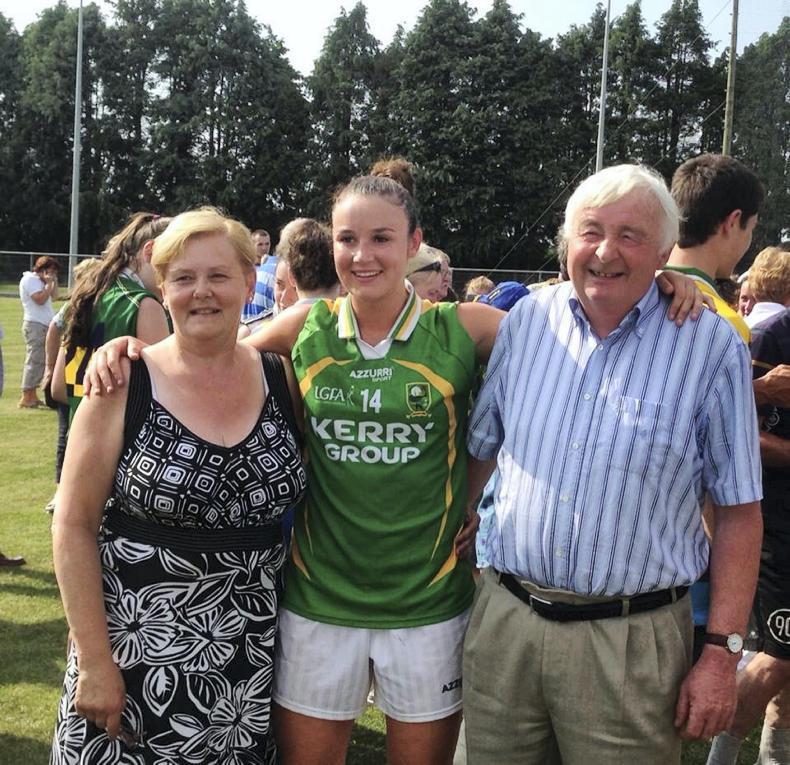
Louise Galvin with her parents Aidan and Kay at the 2013 Munster football final, where Kerry beat Cork and Louise was named player of the match.
Her weekly schedule is filled with field and gym sessions, athlete monitoring and assessment, one-on-one coaching, physio, nutrition and massage, not to mention team meetings and all-important recovery. She also works part-time as a physio to maintain her professional skills, while completing a master’s part-time.
Most recently, she has taken on a new role representing her squad on the Rugby Players Ireland executive – amongst the first women to do so. While she sees herself as an athlete rather than a “female athlete”, she’s also conscious of the power that she and her fellow sportswomen have as role models to encourage younger girls to get involved in sport.
“If that can help 10-year-old Jane – wherever she is in the country – and make it normal for her to see these athletes, and then maybe it might encourage her or inspire her to pick up a hurl or a rugby ball or a basketball or whatever it is, then you’re only doing good,” she says.
At the moment, the main focus is a “winner takes all” opportunity in Russia this July to qualify for the Tokyo 2020 Olympics – but as mentioned earlier, there is a small matter of a wedding too. In December, Louise will marry Donnchadh Walsh, who is also a physiotherapist and a former Kerry footballer, and while the couple currently live in Dublin, the long-term dream is to return home.
Where it all began.
“The inherent enjoyment I get out of kicking the ball against the gable end of the wall at home or throwing the ball against the torn ring off the side of the turf shed that was a bit wonky, I enjoy that so much – and it’s the same reason I’m chasing a ball around today,” smiles Louise.
Thanks to the InterContinental Dublin – a luxury five-star hotel in Ballsbridge – for facilitating our photo shoot. For further information, visit their website.
As a professional rugby player – and bride-to-be – Louise Galvin thought she had managed to organise her Christmas wedding around the HSBC World Sevens series.
“I was like, ‘OK, Dubai is the first week in December; that’s two weeks for black eyes to heal,’” she states, matter-of-factly.
That was until the announcement of two new fixtures, including one in Capetown just before the big day.
“So I fly back on the Monday or Tuesday, depending on flight times, and get married on the Friday… hopefully my face will be fine!”
Though we suspect that whatever happens, the farmer’s daughter will be as cool, calm and collected walking up the aisle as she is on the pitch, having overcome much bigger obstacles along the way while making the transition to professional sport in 2015.
Farming roots
We meet at the InterContinental Hotel in Dublin 4, close to the IRFU training base; but it soon becomes clear that Louise’s heart is in north Kerry, where she was one of six children raised on a dairy farm near Finuge by her parents, Aidan and Kay.
Sadly, Aidan passed away in December after a short illness, but his legacy lives on – particularly in terms of his work ethic – with Louise explaining how he actually took over his own family farm at just 19, after his parents and siblings decided to immigrate to England.

A physiotherapist by profession, Louise left her job in 2015 to go pro. \ Rita Slattery
“I think it’s very interesting because when you think now of a 19-year-old just digging your heels in,” says Louise, who believes that growing up on a farm laid the groundwork for her future in rugby in many ways.
“There was no, ‘You can’t do that because you’re a girl, you’re not able,’ it was the opposite. If we put calves in the field for the first time and they were running all over the place and one outruns you, he was like: ‘I thought you were faster than that?’ Or if you can’t close a gap, he’d say: ‘I thought you were stronger than that?’” she recalls.
“A lot of people say to me: ‘God, you’ve done very well in what’s known as kind of a male-dominated environment.’ I kind of take it in my stride because I never thought of it that way… there’s no such thing that you can’t do something because you’ve a ponytail. And dad still allowed me to be a girl.”
Indeed, at his funeral, it was important to Louise that she helped carry his coffin to his final resting place.
“So that was my last kind of real tribute to him,” she reflects.
Life-changing
Today, the farm is run by her younger brother, along with her mother, with Louise making the pilgrimage down the M7 as often as she can between squad training and fixtures, which have seen her travel to Sydney, Japan, Canada and France so far this year, with Russia in July and Dubai and Capetown before the end of December.
Not that Louise ever saw a future as a professional athlete, not to mind in rugby.

Louise has also taken on a new role representing her squad on the Rugby Players Ireland Executive. \ Rita Slattery
“Absolutely not, because it wasn’t visible,” says Louise, who explains that Kerry football was the religion at home, though she also started playing basketball in school, before moving to Limerick after her Leaving Cert to study physiotherapy.
Not that it stopped Louise excelling in both sports: being capped internationally at under 18, under 20 and senior level in basketball, and playing with the Kerry ladies’ football team for six seasons.
However, she only started playing rugby in her mid-20s after losing a bet with her boyfriend, Alan Feeley, to go along to a training session with UL Bohemians RFC.
“And loved it,” she confirms. “I said: ‘What will I do now? I can barely juggle two sports, never mind three!’”
In November 2013, however, Louise’s world was rocked when Alan died suddenly after suffering a major brain haemorrhage. He was just 28.
It’s just soul destroying and for a while you’re wondering what is the point in anything we do and what is the point in life at all
Even now, she says “words can’t describe” the shock of the loss.
“It’s just soul destroying and for a while you’re wondering what is the point in anything we do and what is the point in life at all,” says Louise, who credits family and friends with helping her to “keep my head above water”.
“I just still remember being incredibly astounded by the goodness of people. Because obviously, it’s such a tragedy. I just can’t get over how genuinely people felt for him, for me, for all the people who were affected by his loss.”

Louise Galvin at the InterContinental Dublin hotel. \ Rita Slattery
But as the months passed, she recalls one conversation in particular with a close friend, who works in cancer research. Her advice was that while the loss of Alan was undoubtedly a major event in her life, it did not have to “define” the rest of her life.
OK, this is something massive that’s happened, but you’re going to learn things, it’s going to give you a massive perspective on life in that you don’t have to sweat the small things
“I needed somebody quite close to me that I could trust to be able to say that to me – that life is not all ‘before Alan died’ and ‘after Alan died’, because that’s the way everything was looking,” explains Louise.
“It was a case of, ‘OK, this is something massive that’s happened, but you’re going to learn things, it’s going to give you a massive perspective on life in that you don’t have to sweat the small things and actually an idea of what the important things are, which is family, friends, relationships, the things you enjoy.’”
And for Louise, one of the things that helped her find her feet again was sport.
“Because for that one hour, I was the old Louise. My opponent probably knew what happened because Ireland is small and these sporting communities are small, but it was irrelevant, they were still trying to get the ball off me and I still had to get the ball off them,” she explains.
I just remembering thinking, ‘God, sport is so important to me’
“Some people were saying: ‘God, don’t be putting yourself back in those stressful environments and competitive environments.’ And I was like: ‘That’s what I need because that’s normal for me. That’s the only part of my life right now that feels normal or routine.’
“And I just remembering thinking, ‘God, sport is so important to me’. It’s given me so many friendships and support networks of people I can rely on.”
Going pro
The experience also underlined for Louise “how fragile life is”, so in 2015, when she was approached to join the Irish Rugby Sevens squad, she took a career break – and leap of faith – and moved from Limerick to Dublin.
“I left my permanent, pensionable, HSE job… oh my parents!” she jokes. “(But I thought) life is short and I can’t do this in 10 years.”
I would have played every minute as well, so it was a really difficult tournament
And she has no regrets; shortly after joining the squad, Ireland achieved a major goal of attaining core team status on the world series, and when Louise had to make the call between returning to work or sticking with sport, she went with the latter.
Other highlights include beating England at the World Cup in San Francisco last summer to finish in sixth place, and making it into the “top four” in Sydney in January – though this was a bittersweet victory for Louise, just a month after losing her dad.
“I would have played every minute as well, so it was a really difficult tournament, but it was probably a nice personal achievement to be able to not only get through it, but to be able to have a positive impact for the team as well,” says Louise, who credits her teammates and management for their support.

Louise Galvin with her parents Aidan and Kay at the 2013 Munster football final, where Kerry beat Cork and Louise was named player of the match.
Her weekly schedule is filled with field and gym sessions, athlete monitoring and assessment, one-on-one coaching, physio, nutrition and massage, not to mention team meetings and all-important recovery. She also works part-time as a physio to maintain her professional skills, while completing a master’s part-time.
Most recently, she has taken on a new role representing her squad on the Rugby Players Ireland executive – amongst the first women to do so. While she sees herself as an athlete rather than a “female athlete”, she’s also conscious of the power that she and her fellow sportswomen have as role models to encourage younger girls to get involved in sport.
“If that can help 10-year-old Jane – wherever she is in the country – and make it normal for her to see these athletes, and then maybe it might encourage her or inspire her to pick up a hurl or a rugby ball or a basketball or whatever it is, then you’re only doing good,” she says.
At the moment, the main focus is a “winner takes all” opportunity in Russia this July to qualify for the Tokyo 2020 Olympics – but as mentioned earlier, there is a small matter of a wedding too. In December, Louise will marry Donnchadh Walsh, who is also a physiotherapist and a former Kerry footballer, and while the couple currently live in Dublin, the long-term dream is to return home.
Where it all began.
“The inherent enjoyment I get out of kicking the ball against the gable end of the wall at home or throwing the ball against the torn ring off the side of the turf shed that was a bit wonky, I enjoy that so much – and it’s the same reason I’m chasing a ball around today,” smiles Louise.
Thanks to the InterContinental Dublin – a luxury five-star hotel in Ballsbridge – for facilitating our photo shoot. For further information, visit their website.







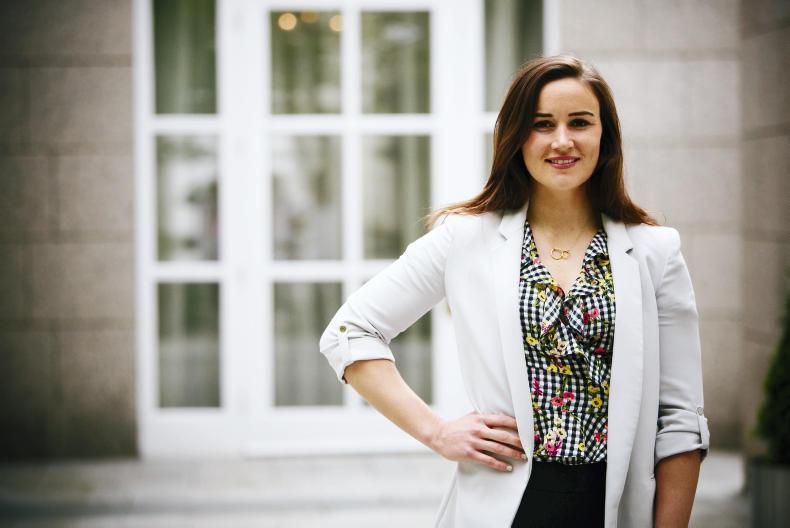

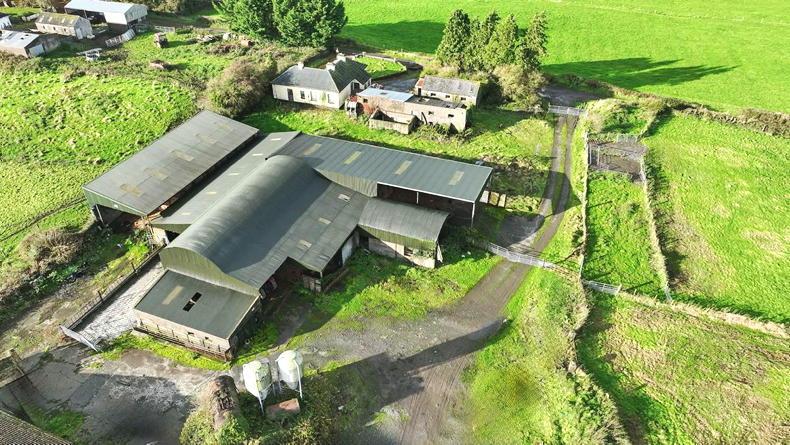
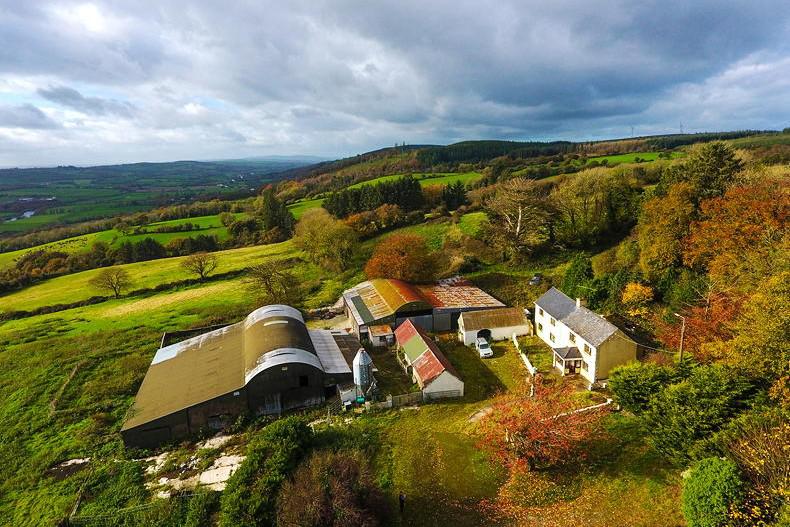
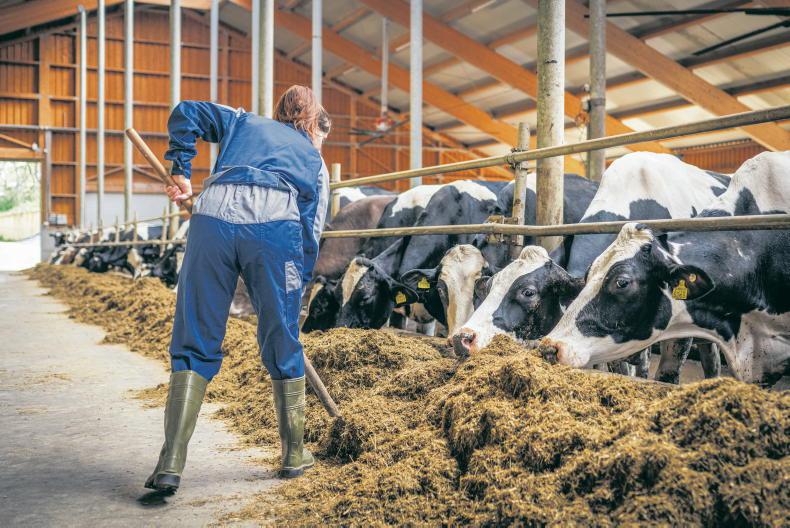
SHARING OPTIONS